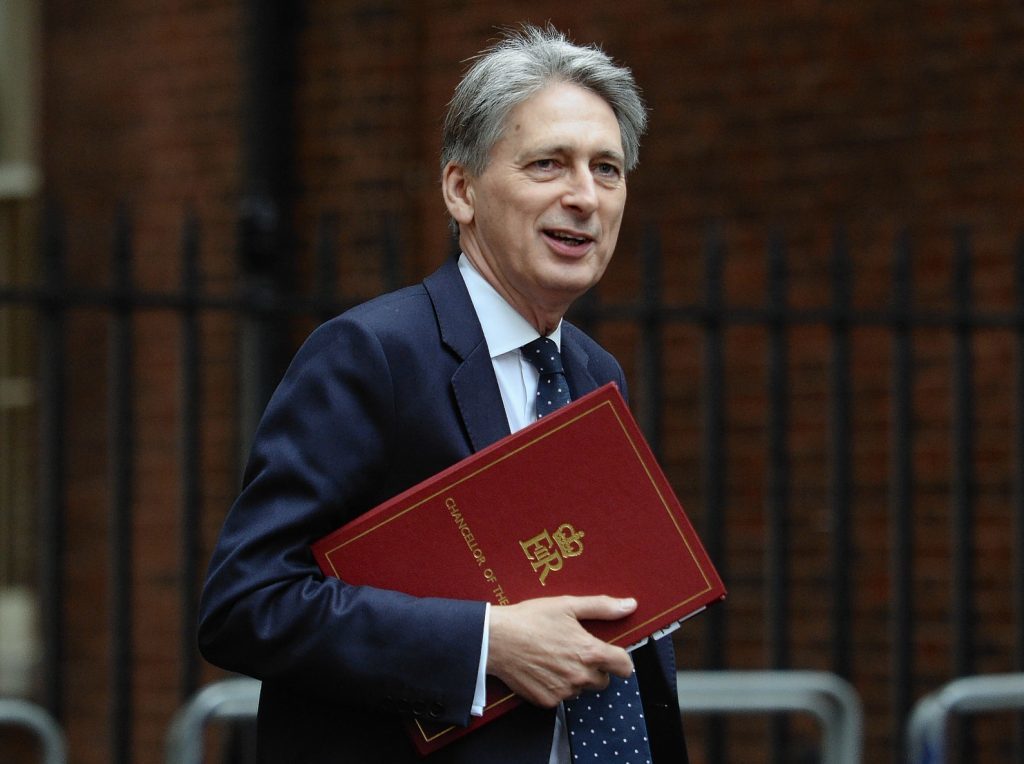
Downing Street has defended the need for ambitious action to tackle climate change after warnings from the Treasury that cutting the UK’s greenhouse gas emission to zero by 2050 will cost £1 trillion.
Theresa May has come under pressure from scientists, experts, health professionals and environmental groups to set a target to reduce the UK’s emissions to net zero by 2050 before she steps down as Prime Minister.
But a leaked letter from Chancellor Philip Hammond put the total cost of moving to a zero-carbon economy at “well in excess of £1 trillion”, and said it will have profound implications for households, businesses and the Exchequer.
Number 10 would not comment directly on the leaked letter but insisted it was the “right thing to do to protect our planet” and it would be wrong to frame the costs as a “trade-off for public spending”.
Calls to set a target came after a report from the Government’s advisory Committee on Climate Change (CCC), which recommended putting a new goal into law to cut greenhouse gas emissions by 100% by 2050.
The committee said the goal could be achieved at the same cost as the existing legal target to cut climate pollution by 80% by mid-century, and would deliver economic opportunities.
Under a net-zero target, emissions would have to be largely eliminated from electricity generation, transport and heating, with a switch to renewables, electric vehicles and an end to traditional gas-fired boilers for heating homes.
Any remaining pollution by 2050 from areas such as agriculture and flying will need to be offset through measures to capture carbon, such as planting trees.
In a letter to the Prime Minister leaked to the Financial Times, Mr Hammond set out the cost of the shift.
While he backed setting a net-zero target as soon as possible in the letter, Mr Hammond warned the UK is off track on meeting interim “carbon budgets” to cut emissions, and a new target will require ambitious policies in this parliament.
This will require increased Government spending, reducing money available for other areas, and a review should be undertaken before a new legal target is set, according to the leaked letter.
Doug Parr, chief scientist for Greenpeace UK, accused the Treasury of “putting their ideology before our well-being” and failing to include the benefits of a switch to a net-zero economy.
He said: “If you want to know whether a policy is a good idea, you include the benefits as well as the costs, and in this case the benefits include an economy fit for the 21st century, cleaner air, warmer homes and maximising the chances of civilisation surviving.”
Tanya Steele, chief executive of conservation charity WWF, said: “If we are to leave a viable planet for future generations, the Prime Minister must urgently commit to a net-zero future – a legacy to be proud of.
“The investments this requires will not only give future generations security, but in the process create jobs from new, clean industries.
“What’s more, this investment will cost less than dealing with a climate breakdown – the reality if we fail to act.”
A Number 10 spokeswoman said: “We obviously commissioned the committee to look into the target because we recognise the need to go even further than the 80% we committed to back in 2008.
“We are looking at that.
“Our position, as a world leader in tackling climate change, is that this is the right thing to do and it’s a question of ‘when and not if’ we get to net zero.
“I’m not getting into the contents of the letter, but broadly there are a lot of figures out there on this issue that don’t factor in the benefits or consider the costs of not doing this.
“The costs relating to meeting this target are whole-of-economy costs, not a fiscal cost. So it’s not really right to frame it as a trade-off for public spending.”
Shadow chancellor John McDonnell said: “The Tory party is way overdue in adopting a target already put forward by Labour, and now the Chancellor is creating obstacles to prevent the action we desperately need to take.”
The Treasury said it would not comment on leaks, but it is understood the Chancellor is not blocking a move to net-zero emissions.
Recommended for you
